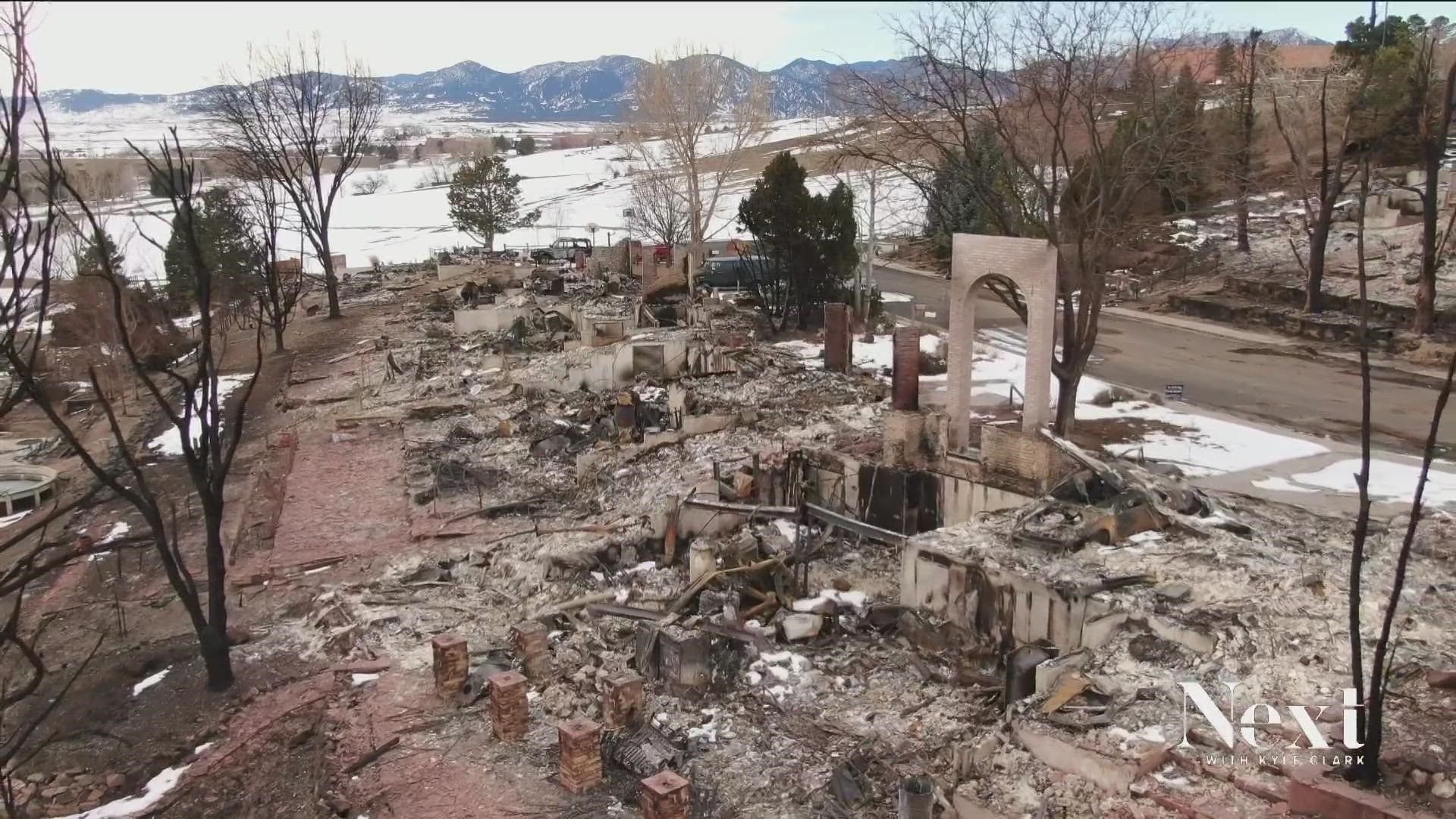BOULDER COUNTY, Colo. — In the moments of the Marshall Fire, firefighters would get to hydrants and realize they had no water pressure. Embers burned the generator for Superior's water treatment plant. And workers at Louisville's water treatment plant made the decision to let untreated water straight from the lake flow to keep water in pipes for firefighters.
"If Louisville didn't keep water in their pipes, you would have seen much more destruction. Many many, potentially thousands of homes lost in Louisville," said Dr. Andrew Whelton, a Professor of Civil Engineering and Environmental and Ecological Engineering at Purdue University.
Dr. Whelton came to Colorado immediately after the Marshall Fire at the request of local officials in Louisville. His expertise on water systems after disasters is vast.
Whelton has been called in to help in places like California, Peal Harbor, and West Virginia.
When Whelton looked into what happened during and after the Marshall Fire, he said that the decision in Louisville to let untreated water into the pipes was the right one.
"Not all utilities would make the same decisions potentially when they're faced with that," said Whelton. "One of the recommendations from our new study encourages utilities and state agencies to talk about what are the conditions to prompt that to happen."
His new case study, published by the American Water Works Association has 20 recommendations to improve water system disaster response and recovery.
The study also found that the water in several systems after the Marshall Fire were contaminated with chemicals at unsafe levels for weeks after the fire.
"There's really been no national push to help everybody," said Whelton. "That's what this case study does. It puts everything down on paper, identifies the nuances between all these different incidents And then puts a path forward that people can then take."
Whelton said Colorado started taking that path forward right away using science from his team to guide them.
"They're in a situation where they don't really understand what's going on," he said. "They want to do the right thing. They want to make the right decisions. And so they went out and found people to bring it. To get at the table to tell us what to do and the made the right decisions."
Whelton and his research team also tested private wells after the Marshall Fire. A study on that is set to be published soon. He said they found the shallower wells were more likely to be contaminated with chemicals associated with soot and ash.
SUGGESTED VIDEOS: Marshall Fire coverage

